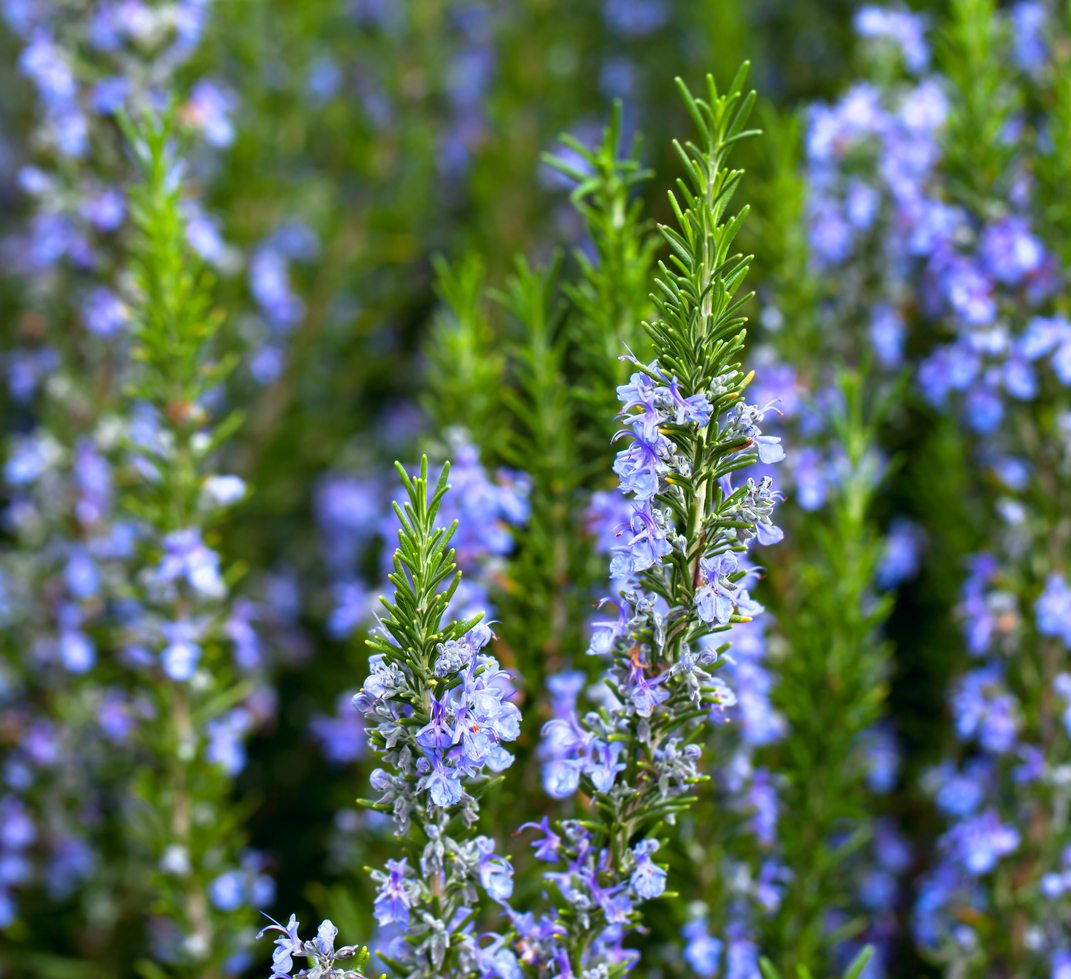Herbal Spotlight: Rosemary In addition to culinary delights, rosemary has a long history as a medicinal herb. Several cocktails use rosemary as an ingredient, which is telling, as many ingredients in older cocktails such as digestive bitters and herb-infused spirits often have medicinal qualities of their own. Around 400 BCE, the Greek "father of medicine" Hippocrates prescribed rosemary for liver problems and as it turns out, he was probably right to do so: modern research in India shows that rosemary enhances bile flow, which is necessary for detoxification and fat metabolism; other research shows it may also lower plasma liver enzymes. Historically, rosemary has been linked to memory and cognitive improvement: students in ancient Greece would weave sprigs of rosemary in their hair during exams to improve their performance, and Shakespeare wrote "There's rosemary, that's for remembrance." Modern people still use rosemary as an overall mental tonic; the smell is invigorating and has been shown to have a beneficial effect on the circulatory nerves and the central nervous system. In a study published in 2007 in the journal Psychiatry Research, Japanese researchers found that five minutes of breathing a mixture of lavender and rosemary scents reduces salivary cortisol levels (a measure of stress) in 22 healthy volunteers; a study published in the International Journal of Neuroscience in 2003 found rosemary aroma can significantly improve memory and alertness in healthy adults. It's also got anti-inflammatory properties: the German scientific advisory board approved rosemary essential oil for treating arthritis and muscle pain. Rosemary is our favorite herb to add to the steam-pot on the wood-burning stove in cold weather. The aroma is savory and cheering and a bit reminiscent of Christmas, and the mental stimulation it provides helps alleviate the cognitive fog that can come with a long, dark winter. For a quick and delicious rosemary-kissed side dish, try cutting small red or yellow potatoes in half or in quarters, and tossing them into a roasting pan with olive oil, lemon juice, whole unpeeled garlic cloves, salt, pepper, and lots of fresh rosemary. Bake at 400F, tossing occasionally, until the potatoes are golden and cooked through. Garnish with lemon zest and fresh parsley and serve. The crispy rosemary leaves and creamy garlic are great to nibble, and the potatoes aren't bad either! Yum. Native to Southern Europe, rosemary is a simple
shrub to grow in any Mediterranean climate. It
prefers full sun and well-draining soil, and requires
regular watering to establish, but should
thrive off of winter rains and dry summers once
they’ve been in the ground for a year or two.
The more the young plants are pinched back the
bushier they will become, and after a few years a
woody trunk will begin forming. Rosemary plants
can live for decades; make great pot plants, and
wonderful bonsai. Note: The content in this article is meant to inform, not to diagnose or treat
any ailment. Always use common sense, and consult with your healthcare
provider before attempting to treat yourself or others. top | Newsletter Home |Table of Contents| Archive
|



